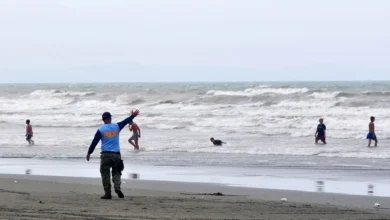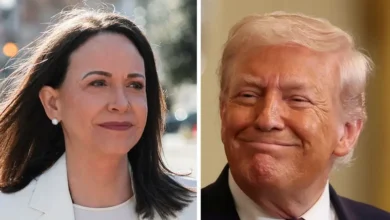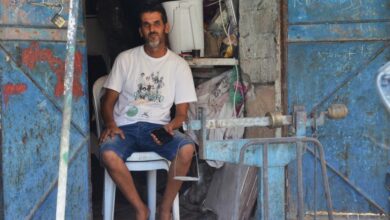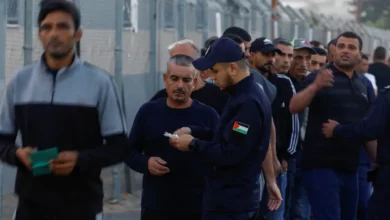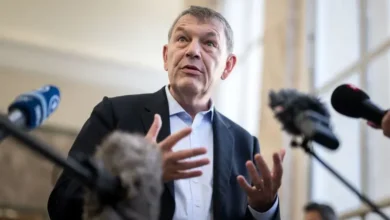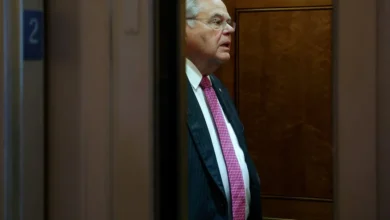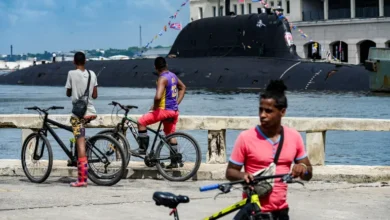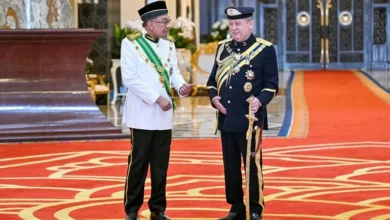Russian teacher sentenced to 20 years for high treason after sending money to Ukraine
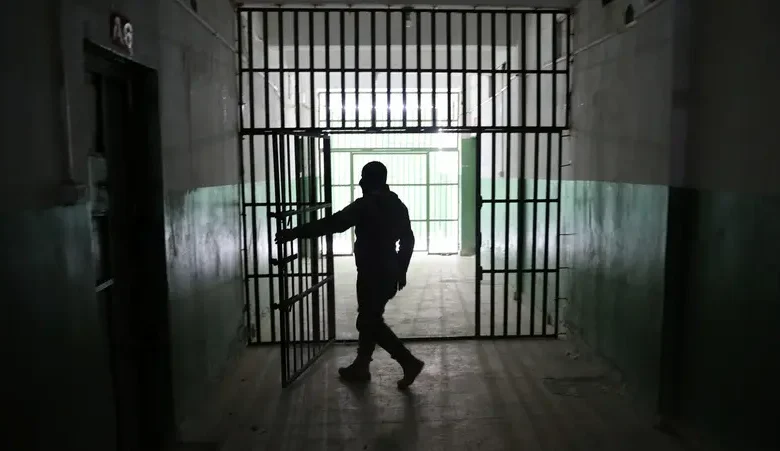
A Russian military court has jailed a teacher for 20 years on “high treason” charges for sending money to Ukraine, with the defendant saying colleagues reported him to authorities.
Russia has unleashed a mass crackdown on dissent or alleged support for Ukraine since launching the military campaign against its pro-Western neighbour in February 2022, with thousands of people jailed or fined.
Daniil Kliuka, 27, will spend five years in prison and 15 more in a “strict-regime penal colony”, an anonymous spokesperson from the jurisdiction told the RIA Novosti news agency on Thursday.
According to the court’s website, the verdict was delivered on Wednesday, with the defendant accused of “high treason” and “support for terrorist activities”.
Russian media group RBK said Kliuka allegedly made two bank transfers in cryptocurrency worth between 20,000 and 100,000 rubles ($229 to $1,146) to a Ukrainian fund, “Come back alive”, which collects money for the country’s army.
According to the indictment, Kliuka also planned to send money to Ukraine’s Azov regiment, which Russia has classed as a terrorist organisation.
RBK said Kliuka pleaded guilty during the trial. He was arrested in February 2023 in the Lipetsk region south of Moscow, Russian media reported.
In a letter published in July last year by the Telegram group Politzek-Info, which covers political repression, Kliuka said he was arrested after scribbling horns, beards and moustaches on people shown in a local pro-Kremlin newspaper.
After Russia launched its military campaign, Kliuka said his school colleagues noticed the drawings on the newspaper and reported him, leading to his sacking.
Kliuka said he made the sketches to “have a laugh” or “express his feelings”.
They also called the FSB security service, “gave them these newspapers and said I was interested in explosives,” he wrote.
He added that the money transfers found on his telephone were sent to relatives from Ukraine’s occupied Lugansk region and that he was forced to confess they were to finance the Azov regiment.
